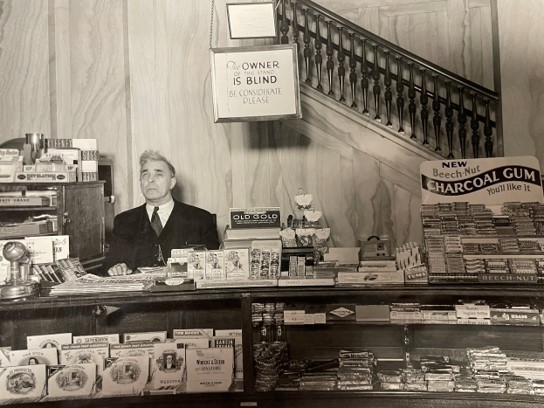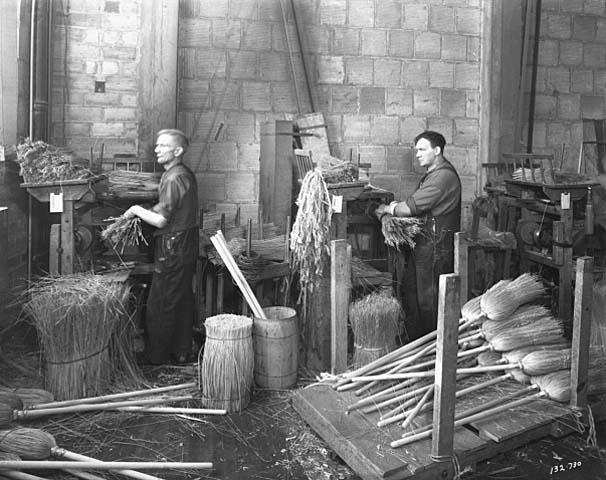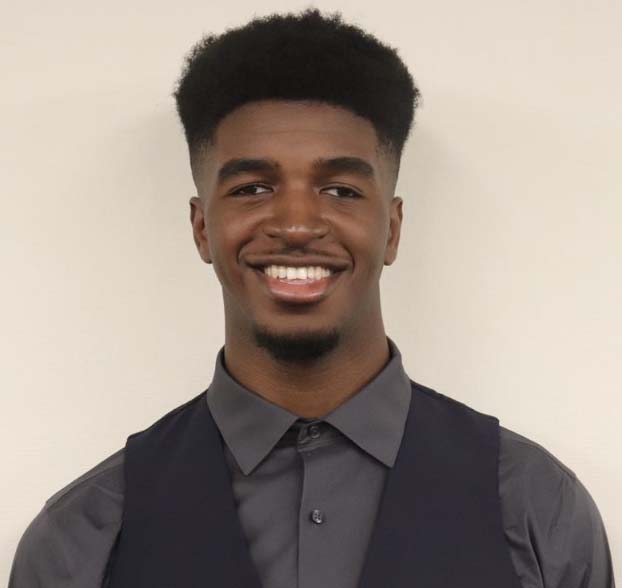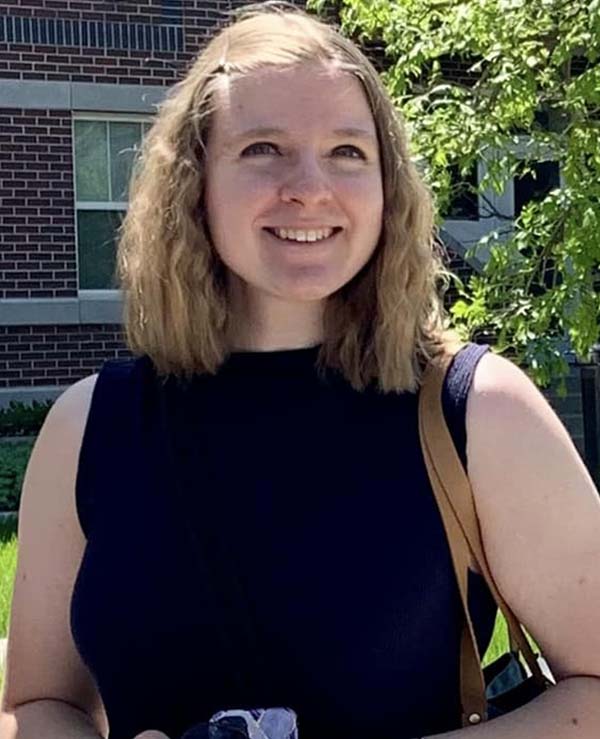6/23/2023 10:17:28 AM
State Services for the Blind Outreach Coordinator Lisa Larges

"It's always important to look back and take stock of where we've come from," says State Services for the Blind (SSB) Director Natasha Jerde. "Here at SSB, we're very focused on using the lessons of the past to shape a better future."
Jerde's reflection comes as DEED's State Services for the Blind Office marks its 100-year milestone. Indeed, Governor Walz proclaimed June 22 as "One Hundred Years of State Services for the Blind Day" in Minnesota – highlighting the centennial anniversary of the legislation that established a program to serve blind, DeafBlind, and visually impaired Minnesotans.
Since 1923, SSB has served thousands of Minnesotans, from injured World War I veterans, to blind, DeafBlind, and visually impaired job seekers, to seniors adjusting to vision loss. Assisting customers in achieving vocational and personal independence has always been a goal of SSB. At first, options were extremely limited. Broom-making, for instance, was a trade open to blind individuals. In the middle of the last century, options were expanded as a federal law, the Randolph-Sheppard Act, gave priority to blind citizens to own and operate newspaper and vending stands on federal property. Now, SSB assists Minnesotans with visual impairments to work in any field that interests them.

"We want to continually evolve so every Minnesotan who is blind, DeafBlind, low vision, or has a print disability knows they can turn to us to jump start their journey to meet the goals they set for themselves," Jerde noted. "That means access to print in a form that works; getting connected with the training and resources to build independence and confidence; and it means people can find life-sustaining careers with opportunities for growth."
Amy, Joshua and Kat are three SSB customers whose journeys exemplify the opportunities and possibilities opening to blind, DeafBlind, and low vision Minnesotans.
 Amy, who just graduated from Osseo High School, is headed to the University of Minnesota - Duluth in the fall. Amy says the things that make her nervous about college are the same things that excite her: "I'm nervous about coursework and about the social aspect. But I'm excited to be challenged, and to be on my own and meeting new people."
Amy, who just graduated from Osseo High School, is headed to the University of Minnesota - Duluth in the fall. Amy says the things that make her nervous about college are the same things that excite her: "I'm nervous about coursework and about the social aspect. But I'm excited to be challenged, and to be on my own and meeting new people."
Among Amy's many achievements, she had a leading role as Morticia in Osseo High's production of The Addams Family. Her accomplishments as a blind actor were highlighted in a story on FOX 9 news recently. Amy says she relished the chance to play a more sinister character. Theater is something she hopes to continue on the sideline even as she pursues a career as an Orientation and Mobility instructor.
 Joshua is spending the summer working in Human Resources (HR) for Hennepin County, having been selected as one of the county's Urban Scholars. Joshua, who is earning his degree in Human Resource Development, uses part of his time as an Urban Scholar to interview supervisory staff who manage various aspects of HR, in order to learn about all aspects of the field. With an interest in organizational psychology, Joshua is pursuing a career in HR because of his passion for wanting to help others succeed. When he's not working or studying, Joshua can be found at the gym, playing sports, or advocating for the rights of blind people.
Joshua is spending the summer working in Human Resources (HR) for Hennepin County, having been selected as one of the county's Urban Scholars. Joshua, who is earning his degree in Human Resource Development, uses part of his time as an Urban Scholar to interview supervisory staff who manage various aspects of HR, in order to learn about all aspects of the field. With an interest in organizational psychology, Joshua is pursuing a career in HR because of his passion for wanting to help others succeed. When he's not working or studying, Joshua can be found at the gym, playing sports, or advocating for the rights of blind people.
Having just completed her Masters in Communication Sciences and Disorders from St. Cloud State, Kat is headed off to a new job as a speech-language pathologist with Rochester Public Schools. Kat has a deep commitment to working with elementary school kids and is thrilled to be starting her career at a Rochester elementary school.
 "I'm so glad to be fully employed," Kat says, "It means a lot to have the chance to give back, pay taxes, and contribute to the community. I feel very grateful."
"I'm so glad to be fully employed," Kat says, "It means a lot to have the chance to give back, pay taxes, and contribute to the community. I feel very grateful."
The 100 years of SSB's existence marks a century of progress for blind, DeafBlind, and visually impaired Minnesotans. Today, SSB provides training and resources for employment, offers seniors the tools they need to live well with vision loss, and ensures that any Minnesotan with a print disability has access to the books and materials they need in a format that works for them.
"SSB is a catalyst for independence and access," says DEED Commissioner Matt Varilek, "Every day – in schools, on the job, or out in the community – blind, DeafBlind, and low vision Minnesotans are making our state a better place for all of us."